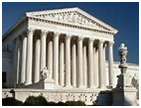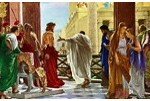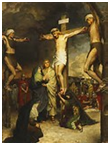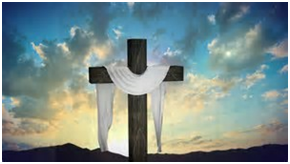“A Piece of My Mind”
April, 2017 Newsletter

Advancing Christian Faith and Values,
Defending Religious Liberty for All,
Supporting Civility and the Common Good
through Preaching, Teaching, Writing,
Activism and Reasoned Conversations
A Divine Word on Judicial Appointments
 (And should one not believe in God, these words still represent the wisdom of the ages rather than the shifty politics of the moment.)
(And should one not believe in God, these words still represent the wisdom of the ages rather than the shifty politics of the moment.)
“You shall do no injustice in judgment; you shall not be partial to the poor or defer to the great, but in righteousness shall you judge your neighbor.”
– Leviticus 19:15 (New International Version)
“You shall not pervert the justice due to your poor in his suit. Keep far from a false charge, and do not slay the innocent and righteous, for I will not acquit the wicked. And you shall take no bribe, for a bribe blinds the officials, and subverts the cause of those who are in the right.” – Exodus 23:6-8
Bible Insight – What Makes “Good Friday” Good?
| How can it be called a good day? From a human vantagepoint that day started badly and ended very badly indeed. | While they were eating the Passover (“The Last Supper”), Jesus said, “One of you will betray me—one who is eating with me.” (Mark 14:18) |
 Jesus was betrayed by his close friend and disciple. He was abandoned by the rest of his disciples. Peter, who most loudly professed loyalty to Jesus, denied him publicly multiple times. Jesus was betrayed by his close friend and disciple. He was abandoned by the rest of his disciples. Peter, who most loudly professed loyalty to Jesus, denied him publicly multiple times. |
Judas, one of the Twelve, appeared. With him was a crowd armed with swords and clubs…now the betrayer had arranged a signal with them, “The one I kiss is the man…” Going at once to Jesus, Judas said, “Rabbi!” and kissed him. (Mark 14:43-45) |
| Jesus was unjustly tried before the religious leaders. He was trivialized before King Herod, who pervertedly wanted Jesus to be a sideshow. He was scourged and shamed by sadistic soldiers. | Peter declared, “Even if all fall away, I will not.” Jesus answered, “…tonight before the cock crows twice you will disown me three times.” But Peter insisted emphatically, “Even if I have to die with you, I will never disown you.” And all the others said the same. (Mark 14:29-31) |
He was denied justice before Pilate, the Roman  Governor, who in a vile moment of political opportunism sentenced him to death. Pilate—who washed his hands of innocent blood. Pilate—for whom “truth” is what is expedient, not what is right and just and abiding. Governor, who in a vile moment of political opportunism sentenced him to death. Pilate—who washed his hands of innocent blood. Pilate—for whom “truth” is what is expedient, not what is right and just and abiding. |
They all condemned him as worthy of death. Then some began to spit at him; they blindfolded him, struck him with their fists and said, “Prophesy!” And the guards took him and beat him. (Mark 14:64-65; verses 53-65) |
 Jesus was put to death by crucifixion—a particularly cruel, agonizing, degrading form of execution. Jesus was put to death by crucifixion—a particularly cruel, agonizing, degrading form of execution.What can possibly make this day “good”? |
Wanting to satisfy the crowd, Pilate…had Jesus flogged and handed him over to be crucified. (Mark 15:15) [Pilate] took water and washed his hands in front of the crowd. “I am innocent of this man’s blood.” (Matthew 27:24) |
| Jesus: “Everyone on the side of truth listens to me.” Pilate: “What is truth?” (John 18:37-38)When they came to the place called the Skull, there they crucified him, along with the criminals—one on his left, the other on his right. (Luke 23:33) | |
| Jesus showed us how to respond to unjust treatment. | |
| When the New Testament speaks of suffering, it very often has “suffering for your faith, even including martyrdom” in mind. Not just suffering in general (such as from injustice or sickness or an accident, etc.). | Christ suffered for you, leaving you an example, that you should follow in his steps. He committed no sin, and no deceit was found in his mouth. When they hurled their insults at him, he did not retaliate; when he suffered, he made no threats. Instead, he entrusted himself to him who judges justly. (1 Peter 2:21-23) |
| We may extend the lesson to other kinds of suffering and learn valuable insights on coping with life’s travails, so long as we remember what the real, intended “Good Friday” teaching is. | If you suffer as a Christian, do not be ashamed, but praise God that you bear that name. (1 Peter 4:16) |
| Jesus showed us how he would obey God’s will faithfully to the end. | |
| Jesus “humbled himself and became obedient to death—even death on a cross” (Philippians 2:8). This radical obedience was simply Jesus living up to the meaning of his baptism. And this is a lesson to us on what it really means to receive Christian baptism, to “take up our crosses” and follow Jesus. | When all the people were being baptized, Jesus was baptized too. And as he was praying, heaven was opened and the Holy Spirit descended on him in bodily form like a dove. And a voice came from heaven: “You are my Son, whom I love. With you I am well pleased.” (Luke 3:21-22)Although he was a son, he learned obedience from what he suffered… (Hebrews 5:8) |
| Jesus showed us the depth of his love for us. | |
| Jesus washed his disciple’s feet on the evening that began the events we recall on “Good Friday”. He showed by this act how his love for his own would extend to his self-sacrifice in their behalf. “Having loved his own who were in the world, he now showed them the full extent of his love” (John 13:1). | “A new commandment I give you: Love one another. As I have loved you, so you must love one another. By this all will know that you are my disciples, if you love one another.” (John 13:34-35)“My command is this: Love each other as I have loved you. Greater love has no one than this, that he lay down his life for his friends.” (John 15:12-13) |
| Jesus secured forgiveness of sins and salvation through his suffering and death. | John [the Baptist] saw Jesus coming toward him and said, “Look, the Lamb of God, who takes away the sin of the world!” (John 1:29) |
| The effect of Jesus’ death (what we call “the meaning of the atonement”) has been discussed and debated throughout the history of Christianity. I won’t go through the theories here. Bottom line, Jesus died “for our sins.” Our transgressions were cancelled, their penalty fulfilled through the cross. Even more, the power of the cross defeated evil and enables us to live lives that are pleasing to God. Not that this is perfect in this life, but it should be progressively achieved. | “The Son of Man did not come to be served, but to serve, and to give his life as a ransom for many.” – Jesus (Matthew 20:24)While they were eating [the Passover], Jesus took bread, gave thanks and broke it, and gave it to his disciples, saying, “Take and eat; this is my body.” Then he took the cup, gave thanks and offered it to them, saying, “Drink from it… This is my blood of the covenant, which is poured out for many for the forgiveness of sins.” (Matthew 26:26-28) |
| My life has always been wrapped up in Christian hymnody. So I close with the words of one of Christianity’s greatest hymns* as they capture the meaning of “What Makes Good Friday Good.” | God made you alive with Christ. He forgave us all our sins, having canceled the written code…that was against us… He took it away, nailing it to the cross. And having disarmed the powers and authorities, he made a public spectacle of them, triumphing over them by the cross. (Colossians 2:13-15) |
| He left His Father’s throne above So free, so infinite His grace— Emptied Himself of all but love, And bled for Adam’s helpless race: ’Tis mercy all, immense and free, For O my God, it found out me! |
…Christ was sacrificed once to take away the sins of many people… (Hebrews 9:28)To him who loves us and has freed us from our sins by his blood…to him be glory and power forever and ever! Amen. (Revelation 1:5-6) |
| No condemnation now I dread; Jesus, and all in Him, is mine; Alive in Him, my living Head, And clothed in righteousness divine, Bold I approach the eternal throne, And claim the crown, through Christ my own. |
* And Can It Be that I Should Gain? – Charles Wesley (1738)Other great hymns on this theme: Arise, My Soul, Arise – Charles Wesley Jesus, Thy Blood and Righteousness –Nicolaus L. von Zinzendorf Alas! and Did My Savior Bleed? – Isaac Watts Hallelujah! What a Savior – P. P. Bliss |
 Religious Liberty Vigilance –
Religious Liberty Vigilance –
Free Speech on Campus and throughout Society
“Congress shall make no law respecting an establishment of religion, or prohibiting the free exercise thereof, or abridging the freedom of speech, or of the press; or the right of the people peaceably to assemble, and to petition the Government for a redress of grievances.” – 1st Amendment
The former Provost of Stanford University, John Etchemendy, recently gave a speech titled “The Threat from Within,” including these words:
Over the years, I have watched a growing intolerance at universities in this country…a kind of intellectual intolerance, a political one-sidedness, that is the antithesis of what universities should stand for…
The larger society seems to have increasing problems with free speech as well, including speech with religion as its content. We would serve our liberties well if we take to heart the words of a Supreme Court justice in 1940, in a case that protected the public free speech of a religious minority.
In the realm of religious faith, and in that of political belief, sharp differences arise. In both fields the tenets of one man may seem the rankest error to his neighbor. To persuade others to his own point of view, the pleader, as we know, at times, resorts to exaggeration, to vilification of men who have been, or are, prominent in the church or state, and even to false statement.
But the people of this nation have ordained in the light of history, that, in spite of the probability of excesses and abuses, these liberties are, in the long view, essential to enlightening opinion and right conduct on the part of the citizens of a democracy.
– Justice Owen Roberts in Cantwell v. Connecticut (1940)
Message of the Month—Are We Called to be “The Church of the Immediate Moment”? (Part 1)
(Or, “Doing Worship from the Christian Top 40”)
The article I read was on “contemporary worship.” The main insistence: if you want to be contemporary, go all the way! Make sure your songs are all of contemporary composition. And “contemporary” doesn’t mean four or five years old.
If this way of thinking becomes the litmus test of worship, what will survive? Not the Apostles Creed. Not even the song “Creed” sung by Third Day! Not great hymns of the Christian heritage. Not even fine praise choruses of the recent past. What version of the Bible will we possibly use? (But of course there’s little reason to take a Bible to many contemporary church services!)
I’m all for learning new choruses. Learning them, that is—to be able to sing them robustly and to ponder their meaning. Not just to stand and watch while platform performers sing new things hard for me to sing, which isn’t worship.
But I won’t force myself to choose between the old and the new. Growth as disciples of Jesus leads all of us to move outside our immediate comfort zones and preferences and learn from others. This includes the voices and heritage of earlier generations and today’s generations.
What strikes me about so-called “contemporary” music and worship is how often they seem to be the antithesis of the biblical understanding of spiritual progress. Biblically, we learn and grow from the insights and experiences of the saints of the past—from their mistakes and successes, from their theology and insights. The Book of Proverbs is filled with practical insights learned through years of testing and validation—insights passed from one generation to the next. The early church began with a hymnody in hand that was hundreds of years old—The Psalms.
“Remember the days of old; consider the generations long past.
Ask your father and he will tell you, your elders, and they will explain to you.” (Deuteronomy 32:7)
 Don’s Upcoming Ministries
Don’s Upcoming Ministries
April 1 (8:30 am) – Speak on “Forgiveness” at Grace Community Church’s Men’s Fellowship at Malarkey’s Grill in Long Beach
June 4 – Pentecost Sunday – Speak on the meaning of Pentecost at Grace Community Church of Seal Beach at Sunday morning worship services (8:00, 9:30 and 11:00)
The Gospel (“Good News”) at the Heart of Easter
 Now, brothers and sisters,
Now, brothers and sisters,
I want to remind you of the gospel I preached to you,
which you received and on which you have taken your stand.
By this gospel you are saved,
if you hold firmly to the word I preached to you.
Otherwise, you have believed in vain.
For what I received I passed on to you as of first importance:
that Christ died for our sins
according to the Scriptures,
that he was buried, that he was raised on the third day
according to the Scriptures.
– 1 Corinthians 15:1-4 (NIV)
Website: www.donaldshoemakerministries.com
Contact me at: donaldshoemakerministries@verizon.net


